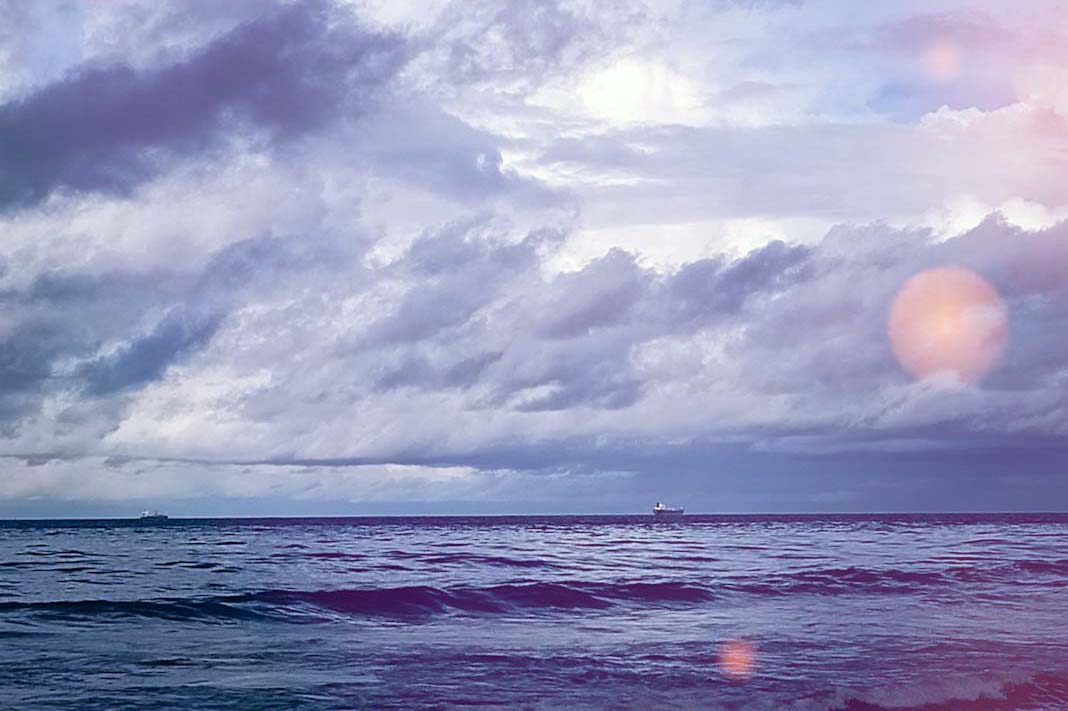The International Maritime Organization (IMO) is set to convene its Marine Environment Protection Committee (MEPC 82) for a week-long meeting. During this gathering, IMO members will discuss and deliberate on various proposed measures designed to safeguard marine environments, particularly in the Arctic region, from the adverse effects of shipping activities, reports WWF.
Reducing Black Carbon Emissions
The IMO meeting takes place amid rapid climate change in the Arctic, marked by rising sea surface temperatures and diminishing sea ice, which are opening new marine areas to shipping. In this rapidly evolving environment, Arctic marine ecosystems and species are especially vulnerable to increasing air and water pollution from ships, as well as greenhouse gas emissions, including short-lived climate forcers like black carbon.
Black carbon, produced from the incomplete combustion of dirty shipping fuels such as heavy fuel oil, not only contributes to atmospheric warming but also accelerates ice and snow melt when deposited on these surfaces, accelerating the diminishing of ice and snow habitats. It also poses a threat to human health. Despite long-standing recognition of the need to reduce black carbon emissions, the shipping industry continues to lag behind land-based transportation in addressing this issue.
Last spring, WWF celebrated a significant victory when the governments of Canada and Norway approved two new Arctic Emission Control Areas (ECAs). ECAs are designated zones where stricter controls are enforced on ship emissions, to reduce pollutants like sulfur oxides, nitrogen oxides, and particulate matter, including black carbon. These new ECAs have the potential to significantly cut black carbon emissions in and around the Arctic.
Banning Scrubber Discharge
Another major source of pollution from Arctic shipping is the continued use of scrubbers—exhaust gas cleaning systems that remove air pollutants generated from burning heavy fuel oil (HFO) and discharge them into the water. Scrubbers allow ships to keep using HFO, the world’s most polluting marine fuel, creating a loophole that leads to unprecedented marine pollution, unnecessary air pollution, and the constant threat of HFO spills.
At MEPC 82, WWF is calling on governments to ban scrubber discharges in their jurisdictional waters and recommends that the Committee adopt a resolution to prohibit scrubber wastewater discharges in coastal and marine protected areas, critical habitats, and IMO-designated Particularly Sensitive Sea Areas.
Stronger Measures
Perhaps one of the easiest ways to reduce a vessel’s carbon intensity—and thus its carbon emissions—is to lower its speed. This measure in particular offers dual benefits for both climate and biodiversity: slower speeds reduce fuel consumption and also decrease underwater noise pollution from ships. When considering marine animals, such as great whales, reducing vessel speed offers a triple win by significantly lowering the risk of fatal ship strikes.
With the number of ships in Arctic waters doubling in the past decade, the natural underwater soundtrack of the Arctic Ocean is becoming polluted by underwater noise from shipping. We know from the world’s oceans that underwater noise has a profound effect on marine life, including whales, fish and even mussels, thereby impacting entire ecosystems.
WWF’s goal is to ensure that underwater noise is managed at safe levels for Arctic marine species and ecosystems. We believe that less noise means more life in our oceans. To achieve this, we are advocating for mandatory measures to manage and reduce underwater radiated noise from shipping.
Did you subscribe to our daily Newsletter?
It’s Free Click here to Subscribe!
Source: WWF















![[Watch] Crazy Power Needed to Move World’s Largest Containerships](https://mfame.guru/wp-content/uploads/2023/11/mfame-tanker-100x70.jpg)

